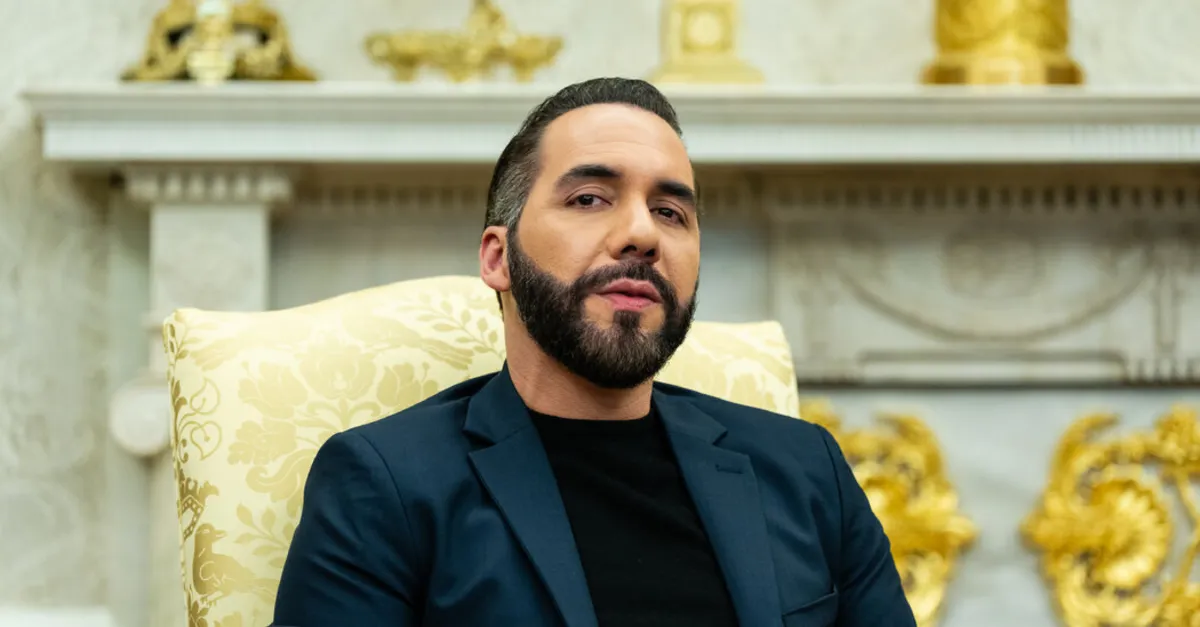
On Sunday, El Salvador’s President Nayib Bukele made a significant proposal regarding the situation of Venezuelan detainees. He suggested the repatriation of all Venezuelans who had been deported to El Salvador from the United States. In return, he called for the release of a corresponding number of political prisoners currently held in Venezuela, including prominent members of the opposition. Bukele's proposal was articulated in an X post directed towards Venezuelan President Nicolás Maduro, stating, “I want to propose a humanitarian agreement that includes the repatriation of 100 percent of the 252 Venezuelans who were deported, in exchange for the release and surrender of an identical number (252) of the thousands of political prisoners you hold.”
Since March, the U.S. government has been sending Venezuelans and Salvadorans accused of connections with notorious gangs, such as the Tren de Aragua and MS-13, to El Salvador. President Bukele had previously agreed to accept these deported individuals in exchange for a fee, holding them accountable for their alleged crimes. The initial flights resulted in the arrival of 238 Venezuelans, many of whom were found to have no prior criminal records, raising questions about the legal justifications for their detention.
Venezuela’s attorney general, Tarek William Saab, promptly responded to Bukele's proposal, demanding the immediate release of the Venezuelans held in El Salvador. However, Saab did not confirm whether the Venezuelan government would consider Bukele's proposal for a humanitarian exchange. This situation escalated tensions, with President Maduro accusing Bukele of complicity in what he termed “kidnapping” of Venezuelans, underscoring the strained relations between the two nations.
Among the political prisoners mentioned in Bukele’s proposal are several individuals detained during a crackdown by the Maduro government last year. Bukele emphasized that, unlike Venezuela, which he accused of holding political prisoners, El Salvador's detention of Venezuelans was part of a broader crackdown on gang activity. He also insisted that as part of the proposed swap, Maduro should release “nearly 50 detained citizens of other nationalities,” including Americans. According to reports from Foro Penal, a Venezuelan watchdog group, at least 68 foreign passport holders are currently wrongfully imprisoned in Venezuela, alongside approximately 900 Venezuelan political prisoners.
The ongoing situation has drawn attention from the United Nations and independent watchdog organizations, which have documented a troubling pattern of human rights abuses perpetrated by the Venezuelan government. The detention of critics and other politically relevant figures has intensified as Maduro seeks to regain support, both domestically and internationally. This maneuvering appears aimed at leveraging negotiations with the United States to reconsider sanctions imposed on his government.
In conclusion, President Bukele’s proposal for the repatriation of Venezuelan detainees highlights the complex interplay of diplomacy, humanitarian concerns, and the ongoing crisis in Venezuela. As both governments navigate this sensitive issue, the implications for political prisoners and international relations remain significant.